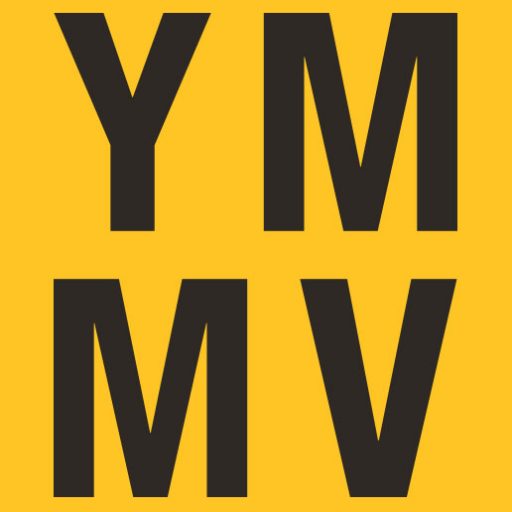After the COVID pandemic began, multiple entities called on the FAA to mandate wearing masks on airplanes. The FAA refused. So, airlines began keeping their own No-Fly lists specifically for anti-maskers without any assistance from the federal government. Simply, those who were on U.S. planes and refused to wear a mask, even after being asked, ran the risk of being banned from whichever airline they were on.
As of early December, Delta had put nearly 700 travelers on their no-fly list, United had 435 passengers on theirs, and JetBlue’s list had 88. American and Southwest said they don’t track mask noncompliance. But still, it means that as of December, over 1,200 travelers were on a no-fly list because they refused to wear proper face masks on their flight.
The one problem with those lists is that they’re not interchangeable. If someone is on Delta’s no-fly list, nothing stops them from taking a United flight, or vice versa.
I suppose there’s something to be said about that – hopefully, whichever person in question would learn their lesson and not cause problems on the “new” airline. And if not, well, I guess then they might be on two no-fly lists.
But now, the individuality of these individual airlines’ lists could cause problems.
The F.B.I. and other government entities have recently said that another attack on the U.S. Capitol, as well as attacks on state capitol buildings, are in the planning stages to begin on or around January 17th. Plans for violence by Trump supporters in Washington D.C. on January 20th, inauguration Day, are also said to be in the works.
The TSA has been asked to ensure that rioters who stormed the Capitol on January 6th won’t be allowed to fly in the days leading up to January 17th. However, the chances of that happening are, well, minimal.
So on to Plan B.
Sara Nelson, the president of the Association of Flight Attendants-CWA, has called on U.S. airlines to band together and share passenger information in an effort to avoid a repeat of the attack last week on the U.S. Capitol by supporters of President Donald Trump.
“We support the swiftest action with clear consequences and clear rules for keeping these people off planes,” Nelson said, as quoted in Forbes magazine.
Nelson wants the airlines to conduct a review of the manifests for the flights to and from Washington before and after the day of the January 6th attack, and share the names of passengers, especially those who have already been identified and/or arrested for their behavior, with the other airlines.
“While the airlines cannot coordinate on competitive issues, they certainly can coordinate on safety issues,” Nelson said. “An airline could say ‘we have banned this person because of XYZ’ and that could actually become an individual ban on each airline.”
Airlines could also coordinate a temporary cross-industry no-fly list targeted for a specific time period or for specific airports.
“This would allow airlines to say, ‘These people present a risk, and they can’t be flying in the next week or whatever time period,’” said Nelson.
“Typically this would not be something that the airlines would do themselves, but this is not a typical time,” she continued.
Nelson said the list could be made in coordination with the FBI and TSA since both government entities could say whether or not individuals are a flight risk.
This would make perfect sense in the short term. Although the jury’s still out on the origins of this guy’s video footage, let’s make up a whole story about him for a second. Let’s say that he was one of the people who were flying home from the riot in D.C. and had been placed on Delta’s no-fly list because on that flight home, he threatened a flight attendant who asked him to stop chanting, “TRUMP! TRUMP! TRUMP!” during the safety spiel. Let’s also say there’s also TikTok footage of him inside the Capitol. OK, so he’s on Delta’s no-fly list. What would currently stop him from flying to Washington D.C. next week on United? Or American? Or Jetblue?
If he and his cohorts were on all the airlines’ respective no-fly lists, it could potentially stop a slew of domestic terrorists from carrying out their violent plans.
“We in aviation have a serious role to play in national security,” Nelson added. “Airlines, in coordination with TSA, DHS, FAA, DOT and law enforcement must take all steps to ensure the safety and security of passengers and crew by keeping all problems on the ground,” said the AFA in a statement. “Acts against our democracy, our government, and the freedom we claim as Americans must disqualify these individuals from the freedom of flight.”
Representing 50,000 FAs from 17 airlines, the Association of Flight Attendants-CWA is a very powerful union. They recently played a role in getting PSP extended, and have a long history of accomplishments.
So now, let’s see what happens.
Want to comment on this post? Great! Read this first to help ensure it gets approved.
Like this post? Please share it! We have plenty more just like it and would love it if you decided to hang around and get emailed notifications of when we post. Or maybe you’d like to join our Facebook group – we have 16,000+ members and we talk and ask questions about travel (including Disney parks), creative ways to earn frequent flyer miles and hotel points, how to save money on or for your trips, get access to travel articles you may not see otherwise, etc. Whether you’ve read our posts before or this is the first time you’re stopping by, we’re really glad you’re here and hope you come back to visit again!
This post first appeared on Your Mileage May Vary
Join our mailing list to receive the latest news and updates from our team.

